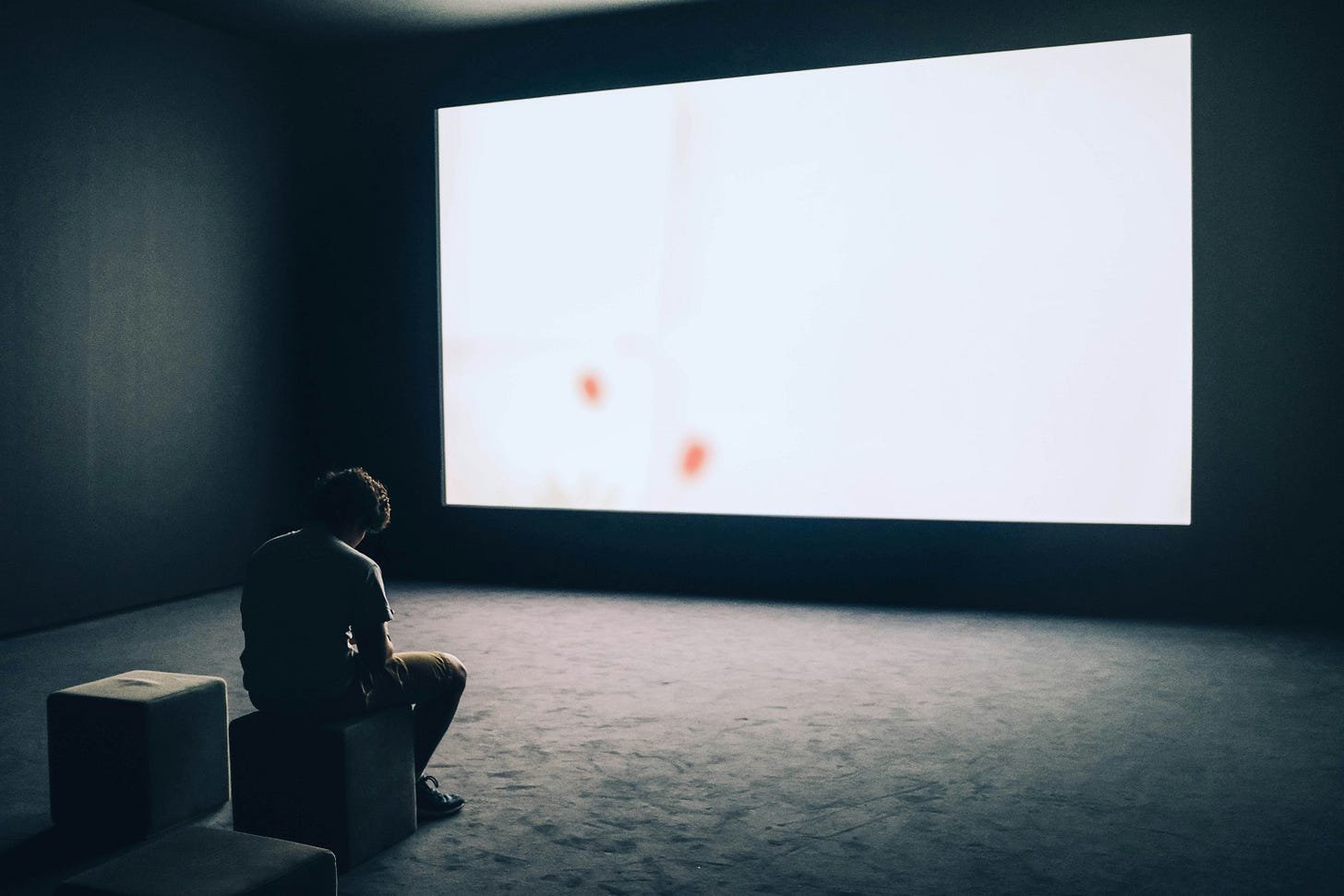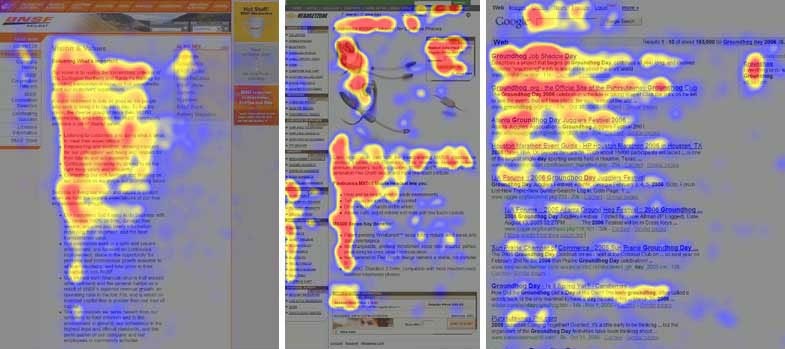Superficial: What the Internet is doing to our minds
Distilling books - Number 3
Welcome to Mental Garden. The following letter is part of our “Distilling Books” collection, in which we extract the most revealing ideas from literature. For the complete library, click here.
🏷️ Categories: Literature, Attention.
“What the internet seems to be doing is diminishing our ability to focus and contemplate. I used to dive deep into the sea of words. Now I skim along the surface of information like someone on a jet ski.”
“The linear mind is being displaced by a new type of mind that wants and needs to absorb and distribute information in short bursts.”
“In the prolonged, distraction-free reading of a book, people made their own connections, drew their own inferences and analogies, and fostered their own ideas. They thought deeply while reading deeply. Now they don’t.”
— Nicholas Carr, The Shallows.
The internet has invaded every corner of our lives.
It is no longer just a tool; it is the environment in which we think, communicate, and learn. Notifications, links, social media, videos, articles... everything is on the internet, designed to capture our attention in brief fragments.
Nicholas Carr warned in The Shallows of a growing trend...
The internet is not just changing how we read—it’s changing how we think.
Your Brain, Hacked by the Internet
The brain is malleable, and the internet shapes it.
Neuroplasticity allows us to adapt to new environments, but it also means that the way we process information changes depending on context. In the past, books fostered deep attention and critical thinking. Today, the internet trains us to scan, jump from topic to topic, and consume information in rapid doses.
"The Web is remaking us in its own image, making us more adept at handling and skimming information but less capable of concentrating, contemplating, and reflecting." — Nicholas Carr, The Shallows
"If, knowing what we do today about the plasticity of the brain, we had to invent a medium to rewire our mental circuits as quickly and thoroughly as possible, we would probably end up designing something very much like the internet."
— Nicholas Carr, The Shallows
Nicholas Carr cites a disturbing study in his book.
After just five days of using Google, people’s brains changed. They processed information faster—but less deeply. In other words, the internet provides us with information, but it changes the way we absorb it (Small, 2008).
We become more efficient at surface-level tasks but less capable of deep thinking.
The "F" Effect
No one reads full articles on the internet.
Nicholas Carr explains that we "scan" information in an "F" pattern: we read the beginning, jump to the middle, and abandon the text before the end. This behavior reduces comprehension and conditions the brain to consume knowledge in fragmented pieces.
Hyperlinks, notifications, colors, and animations create an overload of content that fragments our attention. Every click is an interruption. Every context switch weakens our ability to retain information. This habit of reading in an “F” pattern in digital environments prevents you from reaching the level of concentration necessary for reflective thinking.
You struggle to focus for long periods and find it harder to understand what you read.
"Our use of the internet presents a paradox: the Web captures all our attention only to scatter it. We focus intensely on the medium—on the screen—but we are distracted by the constant barrage of messages and stimuli competing for our attention."
— Nicholas Carr, The Shallows"As we engage with the Web, it delivers a continuous stream of inputs to our visual, sensory-motor, and auditory cortices. It’s not just the ever-changing formations of texts, images, and videos, but also the dynamic hyperlinks that stand out in different colors or underlines, the cursors that change shape depending on function, the bolded email subjects, the buttons, icons, and other virtual elements begging to be clicked, dragged, or dropped; the fields and forms waiting to be filled in, not to mention the pop-up ads demanding attention or dismissal. The Web appeals to our senses simultaneously—only smell and touch remain untouched, for now."
— Nicholas Carr, The Shallows
Google Is Your Memory
In the past, we memorized information because we needed to.
Now, we rely on Google.
This "Google Effect" means that when we know information is available online, we stop making an effort to remember it. This is another collateral damage of internet use. By externalizing memory onto the web, we reduce our ability to form lasting memories and build knowledge from them.
You become dependent on technology to remember—and therefore, to think.
"There’s no need to memorize; we can simply look things up. The key is not to learn everything but to know how to find information when needed."
— Nicholas Carr, The Shallows"Peter Suderman, writing for American Science, argues that ‘it’s no longer efficient to use our brains to store information.’ In his view, our memory should adapt to function merely as an index pointing us to where we can find information online."
— Nicholas Carr, The Shallows
This is the direction in which our brains are heading.
The Age of Superficiality
The most popular information is not the most truthful—it is the easiest to spread.
What is easy to spread?
The most superficial content.
Algorithms amplify information based on the number of "likes" and "shares," favoring content with the highest viral potential.
It’s easier to read a Twitter thread than a 5,000-word essay.
It’s easier to watch a TikTok summary than a full documentary.
And so, meaningful debate is lost. We lose the ability to think for ourselves, leaving us with nothing but popular, superficial information. We become buried in content that confirms our beliefs, preventing critical thinking. This is what the "For You" pages of TikTok and Twitter generate:
Information that reinforces our confirmation bias.

Dopamine and the Addiction to Instant Gratification
Every "like," notification, or scroll activates the brain’s reward system.
We release dopamine.
It’s the same substance that drives us to repeat pleasurable behaviors—it also traps us in a cycle of instant gratification. The problem is, the more we get used to immediacy, the less we tolerate the frustration of tasks requiring prolonged effort, like reading a book or learning something patiently.
We become impatient, dependent on constant stimulation.
"When you click a link, something new appears to look at. When you search for a word on Google, you get a list of interesting facts in the blink of an eye. When you send a text, you receive a reply in seconds. When you use Facebook, you attract friends. When you post on Twitter, you gain followers. The Web provides us with powerful new tools to gather information, express ourselves, and converse, but it also turns us into lab rats pressing levers for dopamine rewards."
— Nicholas Carr, The Shallows
How to Take Back Control
It’s not about demonizing the internet but using it intentionally. Here are some tips:
Block distractions: Use apps like Forest or Freedom to limit your time on social media. Don’t let notifications control you.
Read without distractions: Read on paper, or if you can’t, use an e-reader and eliminate all distractions. I put my phone on airplane mode and read in full-screen mode on my computer. I always close everything except the book—I highly recommend it.
Write by hand: It helps retain information better than digital writing.
Single-tasking: Avoid multitasking to improve concentration.
Elevate your information standards: Don’t settle for headlines—seek depth. Instead of consuming tons of information daily, reduce your intake but go deeper into the topics that interest you to form well-founded conclusions.
If you’ve read this far, you’ve delved deeper than most.
Still curious? You can deep dive into these related insights on The Shallows:
Stop watching the news: Reflections on noise and the search for depth
The multitasking myth: You neither save time nor increase your productivity
Cause of death: Information overdose: How to survive the information overload
✍️ It's your turn: Do you notice that attention is getting poorer? Do you feel that it is now harder than before to concentrate on the same tasks?
💭 Quote of the day: “What we are experiencing is, in a metaphorical sense, a reversal of the initial trajectory of civilization: we are moving from being cultivators of personal knowledge to being hunters and gatherers in the forest of electronic data.” — Nicholas CarrSee you soon, hugs! 👋
References 📚
Carr, N. (2010). The Shallows: What The Internet Is Doing To Our Brains.
Nielsen, J. (2024, 3 september). F-Shaped Pattern for reading web Content (Original Study). Nielsen Norman Group. URL
Small, G. W., Moody, T. D., Siddarth, P., & Bookheimer, S. Y. (2009). Your Brain on Google: Patterns of Cerebral Activation during Internet Searching. American Journal Of Geriatric Psychiatry, 17(2), 116-126. URL







So much of these issues have shaped my computer usage over the years. A good article. Of course, I have a rebuttal. You know how I am, Alvaro.
It's true about the "F" pattern of reading articles. That's how I read most articles: get the facts and save time. And my remembering of most things is tenuous at best. Scanning, however, is a study method to help students in college learn more efficiently. In the old newspaper days, the inverted triangle story format had the main facts in the first or second paragraphs. Then they were expanded in subsequent graphs with the importance of the information creating the priorities. This was a time-saving device because most people read the paper while commuting on the bus/subways. Get the information out there for quick absorption. So you see, it's not just the internet doing this. (Also, it was believed that the average reading level was at the sixth grade level.)
As for Google being our memory storage, the same can be said of books. Libraries, both public and private, are archives of information. It's always there to return to to learn something or remind/relearn from a book already read. The true use of memory to store information came before the printing press was invented. Storytellers and herbalists were the tribal or village libraries. The storytellers would tell the histories, the folktales and legends, the heroic tales of battles to the people as entertainment. The Shenachies (sp) of Ireland would actually meet every ten years to verify their stories to ensure accuracy over the decades. Herbalists (that crazy old lady out in the woods or the witch/midwife) held the secrets of medicinal and food uses for all the plants in the area. Now we have books and the Internet to help us learn ancient knowledge.
more...
beyond all the comprehensive research that proves the brain re-wiring damage smartphones cause, there's one more powerful lure the phones offer up; "i will love you" is the siren song they sing to us. that emotion of wanting to be loved is the moth-to-the-flame experience we flutter around in every waking minute the phone is there.